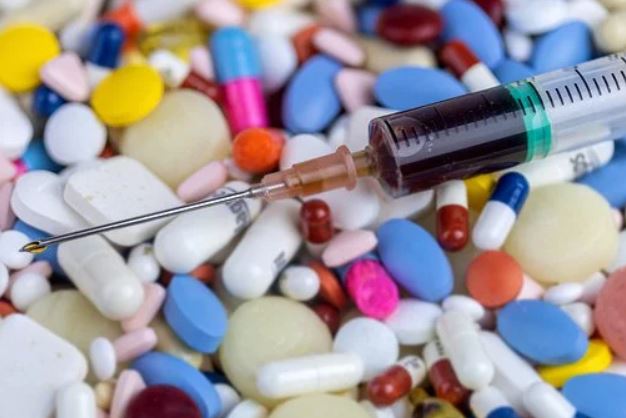 Also known as substance use disorder, drug addiction is among the most common challenges of modern society. Even though it’s more common among teens and young adults, individuals of any age group, including minors, can suffer from addiction and substance abuse, and although most people view addiction victims as community outcasts due to the stigma surrounding it, substance addiction is a mental disease.
Also known as substance use disorder, drug addiction is among the most common challenges of modern society. Even though it’s more common among teens and young adults, individuals of any age group, including minors, can suffer from addiction and substance abuse, and although most people view addiction victims as community outcasts due to the stigma surrounding it, substance addiction is a mental disease.
The best thing is that despite being a complex issue that requires a lot to be put in place, addiction is treatable through medication, counseling, and the victim’s willingness to change behavior.
If you or your loved one is seeking treatment, this should shine a ray of hope. A good number of addiction victims who stick to their treatment program successfully recover from addiction and even forget how the “high” and the urge to indulge felt like.
Tim Gray and the team from iRecover.ca believes that everyone can recover from addiction as long as they seek professional treatment, have support, and have a desire for change. Depending on the severity of the addiction, one or several approaches may be used in treatment. Some people only require outpatient visits whereas others may need residential addiction treatment and aftercare monitoring.
Here are a few pointers briefly describing the process of addiction treatment along with behavioral changes and how they can help with lifelong recovery from the societal vice.
Addiction treatment approaches
While total recovery is always achievable, in all honesty, alcohol and drug addiction usually don’t have a definite cure. Nonetheless, various approaches are used in addiction treatment to help patients overcome the mental disease of substance dependence.
In most cases, the treatment approach may largely depend on the particular drug the patient is addicted to. It may also vary depending on whether or not you have an underlying medical or mental condition related to the substance in question. In most cases, life-long recovery is made possible by a robust long-term follow-up treatment program.
The Oxford Treatment Center, in an article about meth withdrawal treatment, explains:
“Crystal meth, a common form of the stimulant methamphetamine, can cause a severe withdrawal syndrome among people who are physically dependent on the drug.”
Some of the most common treatment programs for addictions include the following:
Drug dependence programs
If you’re addicted to a certain drug, treatment will often involve addiction therapy sessions which you can attend individually, with family members, or in a group of patients suffering from the same addiction. Much of the focus in the therapy sessions is on understanding the nature of your addiction and developing strategies on how you can become drug-free while preventing relapse. Again, depending on your specific situations, the treatment environment may either be outpatient, inpatient, residential.
Substance detox
Popularly known as detoxification or withdrawal therapy programs, detox programs aim at enabling you to stop taking the drug as soon as possible without suffering harm. Again, you may or may not require admission into the rehab center depending on the drug in question and the severity/stage of the addiction.
This is because different drugs have different effects on the body and brain when taken for a long time. In essence, detox programs – especially for opioids, depressants, and stimulants – involve administering lower doses of the primary drug and reducing the dosage gradually until withdrawal symptoms subside. In most cases, safer substitutes of the drug are used, with methadone, naloxone, and buprenorphine being the most common.
 Behavior therapy and behavioral changes
Behavior therapy and behavioral changes
As mentioned earlier, addiction treatment is usually more successful where the patient is willing to change for the better. On this note, behavior therapy is often part of addiction treatment continuing care and it is vital as far as life-long recovery is concerned. It involves counseling and psychotherapy from a mental health and addiction expert, such as a psychiatrist, psychologist, or drug counselor.
Some of the things behavior therapy can help achieve include:
- Suggesting ways to cope with cravings
- Developing ways to prevent relapse
- Help with suggestions on dealing with relapse in case it occurs
- Discussing personal life matters such as relationships, work, family, and social life
- Educating loved ones on how to best offer support and communicate
- Addressing underlying or concurrent mental illness if any
However, behavior therapy works only if you are willing to adopt behavioral changes. For instance, you may have to cut off ties with your previous buddies, stop hanging out in joints you used to enjoy before and start thinking as a drug-free person. You may even have to switch jobs in some cases. The point is, all behaviors that would trigger a relapse will have to go.
Support groups
Once a patient is successfully out of rehab, the support system from their loved ones may not be enough to get them through the journey. Support groups help with addiction treatment in various ways. Some people do better when they associate with other ex-addicts. This is especially the case if the addiction had caused huge changes or painful experiences in the life of the victim, such as the loss of a job, relationship breakups, major financial hardships, or even self-harm.
Members of support groups strengthen and encourage each other to carry on and stay drug-free, especially those that have a good leader, mentor, or counselor.
Even though many consider it to be a failure of sorts, alcohol and drug addiction is a serious mental illness. The sad fact is that most people will not know they’re suffering from addiction until it’s too late and the problem has taken a toll on their lives. If you suspect that you or a loved one is suffering from drug addiction or substance abuse problems, it’s advisable to seek medical help as soon as you can. It’s easier to recover from addiction at its early stages.
Interesting related article: “How does drug addiction affect the human brain?”

